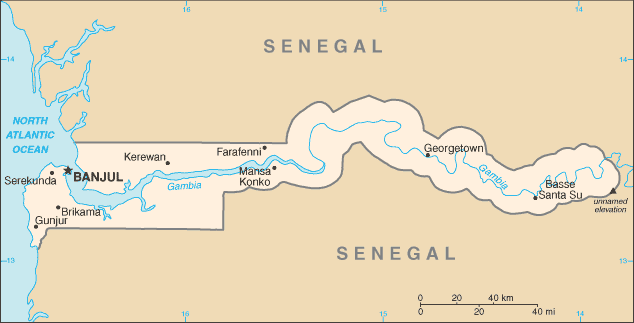Gambia

The Republic of Gambia has an estimated population of 1.7 million (UN, 2010). The capital is Banjul. Gambia has an area of 11,295 sq km (4,361 sq miles). The main languages are English (official), Mandinka, Wolof, and Fula.
Since gaining independence in 1965 from Britain, Gambia has been a stable country. It is one of the smallest countries in Africa. It relies heavily on foreign aid and remittances sent by Gambians living abroad. In 1994, Yahya Jammeh took power in a bloody coup has ruled the country.
Although the Constitution in Gambia grants equal rights to men and women, discrimination against women still persists. Women lack the equality promised in the constitution largely because of the patriarchal legacy that restricts decision-making power at various State and community levels, and reaches to the family unit. Civil law and Sharia law are the two legal systems in Gambia.
- Gambia ratified the Protocol to the African Charter on Human and Peoples' Rights on the Rights of Women in Africa (The Maputo Protocol) on the 25th of May 2005.
- The Convention on the Elimination of All Forms of Discrimination against Women (CEDAW) was ratified by Gambia on the 16th of April 1993.
- Gambia has not yet adopted a National Action Plan on United Nations Security Council Resolution 1325 (UNSCR 1325).
- There are no current or former UN Peacekeeping mandates in Gambia.
Source:BBC, AlertNet, CIA, UN, SIGI,
